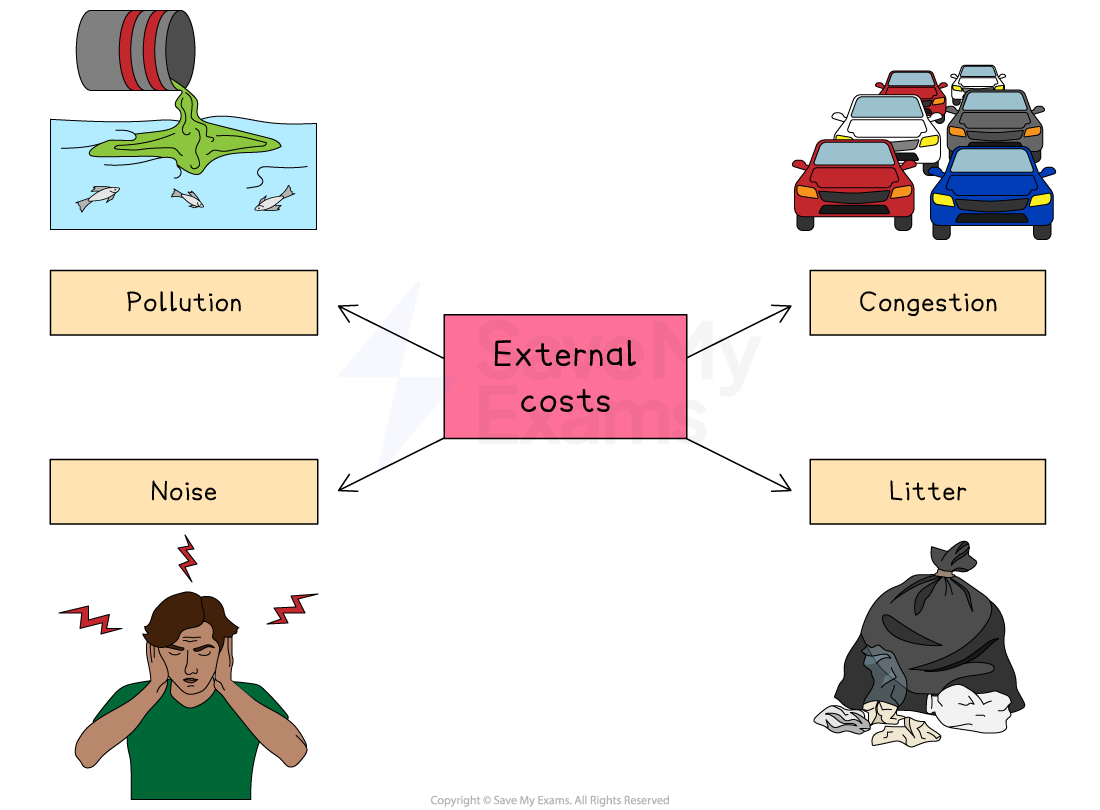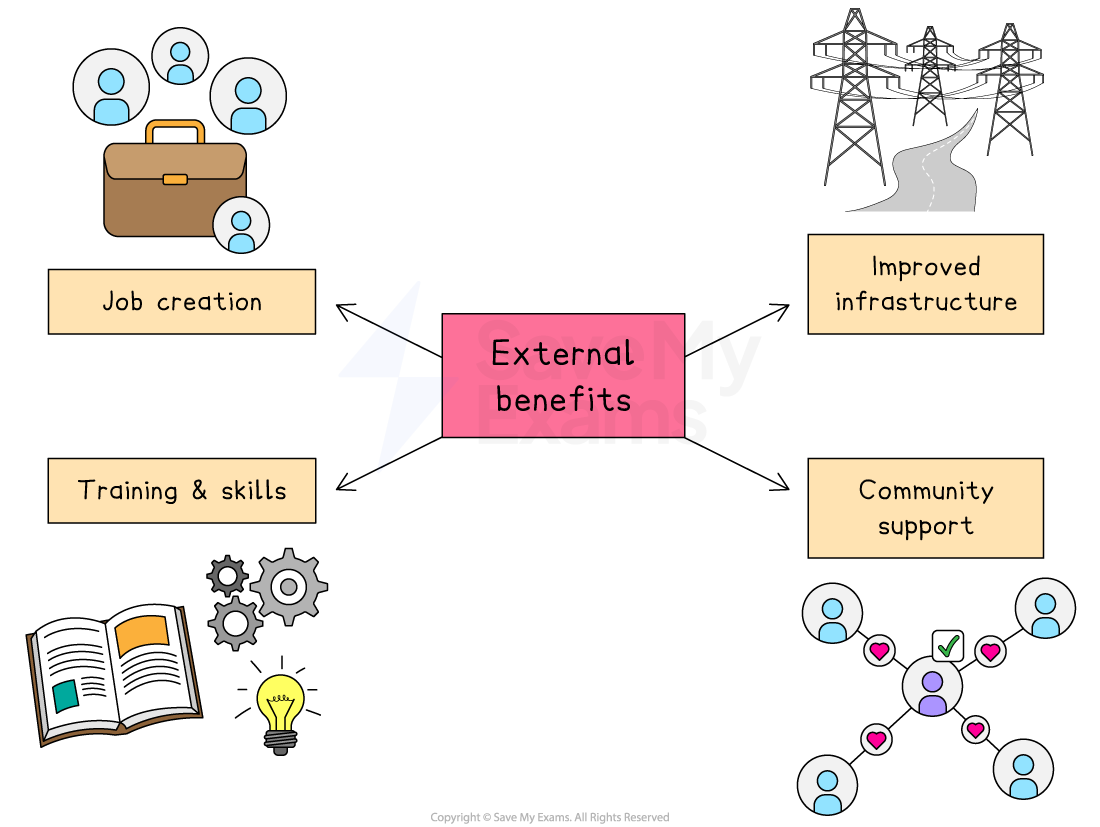Syllabus Edition
First teaching 2025
First exams 2027
External Costs & Benefits (Cambridge (CIE) IGCSE Business): Revision Note
Exam code: 0450, 0986 & 0264, 0774
External costs of business decisions
External costs are unwanted side effects of business activity that affect people or the environment outside the business
These costs are not paid by the business, but by society
External costs can lead to public pressure, government regulation or reputational damage, which may eventually affect the business’s profits or operations

Examples of external costs
Environmental damage
Business activity can lead to pollution, deforestation, and resource depletion.
For example, oil spills from BP’s Deepwater Horizon disaster in 2010 caused severe marine pollution in the Gulf of Mexico
The clean-up costs and environmental impact were huge, affecting local fishing and tourism industries
Traffic congestion
Businesses that rely on large transport fleets or attract many customers can cause road congestion and longer travel times for others
For example, large out-of-town retail parks in the UK, such as Bluewater Shopping Centre, have been criticised for increasing traffic congestion, especially during peak shopping periods
Noise pollution
Factories, airports, and construction projects can create disruptive noise for local residents and businesses
For example, Indonesian residents living near the Soekarno-Hatta International Airport have complained about constant aircraft noise, especially at night, which affects sleep, health and quality of life
Waste and litter
Businesses that produce packaging or operate food outlets may contribute to local waste problems
For example, fast food chains like McDonald’s have faced criticism over the amount of litter left around their stores, particularly in busy city centres
Examiner Tips and Tricks
Don’t confuse external costs with private costs. External costs affect society (e.g. pollution), while private costs affect the business (e.g. wages, materials). Examiners often see students mix these up—be precise, as clear definitions and examples secure higher marks
External benefits of business decisions
External benefits are advantages that a business’s activities provide to people or the environment outside the business
These benefits are not paid for by those who receive them
External benefits can help improve a business’s reputation, build good relationships with local communities and make it easier to operate in different countries

Examples of external benefits
Job creation
Businesses that open new factories, offices, or stores provide employment for local people
For example, when Toyota opened its manufacturing plant in Durban, South Africa, it created thousands of jobs
This boosted the local economy and reduced unemployment in the region
Improved infrastructure
Business investment can lead to improvements in roads, public transport or utilities, which benefit the wider community
For example, the development of Silicon Valley in the USA led to better roads, high-speed internet, and power supply in surrounding areas
These benefited not just tech firms, but also schools, hospitals and residents
Training and skills development
Some businesses offer training that improves workers' skills, which they can later use in other jobs or industries
For example, Samsung in Vietnam provides extensive training for factory workers, increasing the overall skill level of the workforce
Support for local services
Large businesses may donate to schools, hospitals, or community projects near their operations
For example, Coca-Cola in Kenya has supported clean water and sanitation programmes in rural areas, helping to improve public health

Unlock more, it's free!
Was this revision note helpful?
